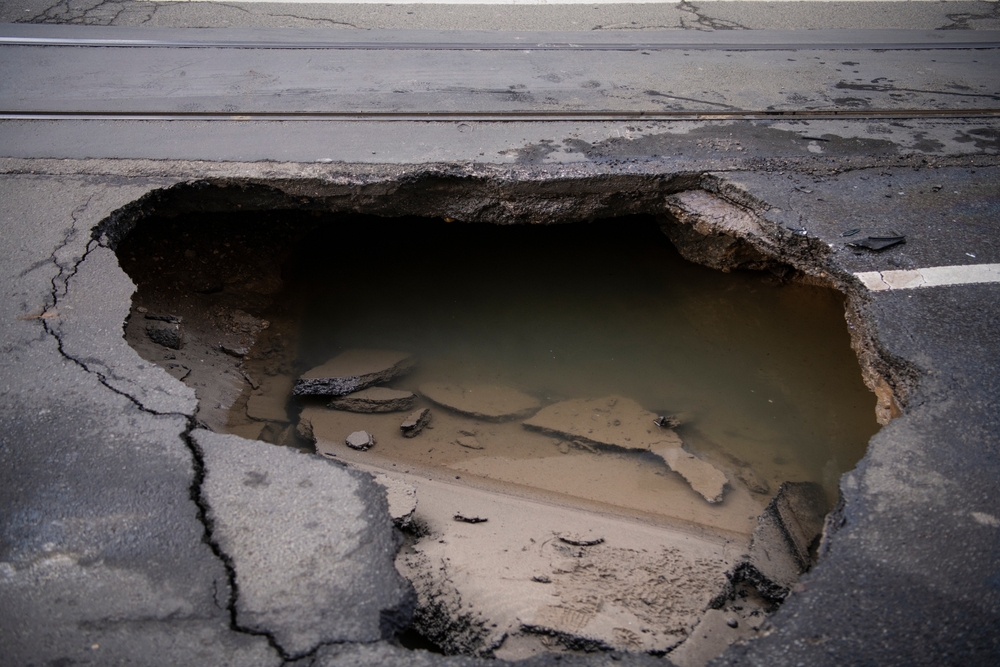
Sinkholes can occur nearly anywhere with carbonate Limestone and Dolomite geology. When a sinkhole develops on your property, you’ll need to call geotechnical engineering geology professionals to assess the situation and provide an effective solution.
How Experts Conduct Sinkhole Investigation
There are procedures by which sinkhole repair companies in NJ conduct sinkhole investigations. They will often do fieldwork in at-risk areas to determine problematic subsurface conditions that can lead to sinkholes. This preventative work consists of looking over existing data, visual inspection of the site conditions, conducting soil borings, and geophysical surveys.
It’s not always possible to predict if there is likely going to be a sinkhole at the site in the future. Sometimes, the work is done after the fact and time is of the essence in an emergency. If you have a true geologic sinkhole on your property, it’s a surface depression and/or an open void that’s in a karst area. This means that it’s over the topography of carbonate rocks that have undergone chemical weathering and have broken down over time. A consultant will be able to take a look at and use various methods to determine the exact nature of the problem. Then, they’ll have a greater chance of coming up with a successful course of action.
Depending on specific insurance, sinkhole remediation may be covered. However, a sinkhole may not be a true karst one. If this is the case, many insurance companies won’t cover the investigation and remediation work. So it’s best that you have an answer as to which type of sinkhole is involved before you begin remediation.
Geophysical Surveying
This type of surveying of a sinkhole and surrounding areas helps to delineate subsurface conditions. Some methods that a consultant typically recommends consist of Electrical Resistivity, Ground Penetrating Radar (GPR), seismic refraction (MASW) and microgravity. Each method has its advantages and disadvantages. Oftentimes it is beneficial to use a combination of techniques.
Borehole Drilling
One major technique that’s used for sinkhole investigation is borehole drilling. They would drill several boreholes into the area in which there’s a sinkhole. This aims to obtain samples of overburden soils and underlying bedrock. This meant to identify cavities in the subsurface and determine the type of bedrock.
Air Rotary Drilling and Rock Coring
These techniques are effective when it comes to assessing rock continuity. They can help the expert detect if there is anything present that can indicate a risk of future subsidence. This includes caverns, clay-filled seams, and void spaces.
Other Common Techniques
Some other techniques that are used include seismic soundings, microgravity surveys, lab soil classification, cone penetrometer tests, and the standard penetration test. You can rest assured that the geological engineering experts are knowledgeable and have the experience to tackle the necessary services.
Get Professional Help for Sinkholes
If a sinkhole occurs on your property, you’ll want to call in the experts. It’s in your best interest to reach out to Earth Engineering Incorporated for geotechnical and environmental services in Philadelphia, Central and Eastern PA, and North Central Jersey. We are pleased to assist you by investigating your sinkhole and conducting remediation services as quickly as possible.
Follow Us